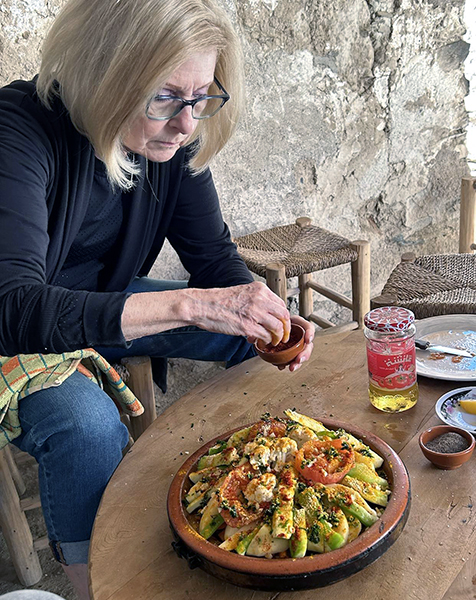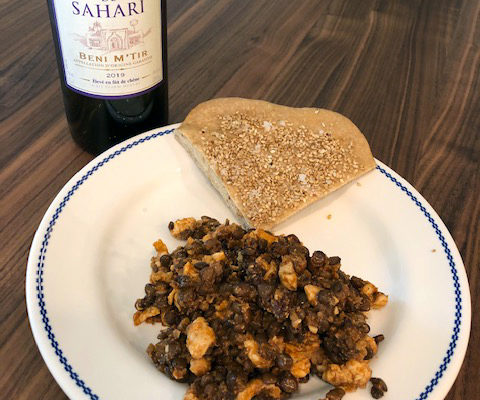I do not know her name or even where she lives, although I was there. On my birthday. What makes her special is that she is not… really. That is not fair. She is special, although not the only person in her circumstance. The simple fact that she speaks English, rather well, while neither of her parents do, at all, makes her special. She left elementary school six years ago, and has not been back. That realization led me to understand she is rather bright. Like her shy smile.
She was curious about us, Karen and I. She wanted to engage with us. To talk in English; but our guide felt compelled to intervene in every conversation. Karen asked about heat in the house since it gets very cold in the winter. She explained there is none. They have many blankets they wrap themselves in. The guide went on to explain they even pull up rugs to place over themselves to sleep on the coldest nights.
When we went for a walk around her tiny mountaintop village while our lunch cooked, she readily joined us at Karen’s invitation, even with the clear disapproval of the guide. During our walk she helped explain that the many women in the building across from the mosque were washing the prayer rugs along with the towels used to wash themselves as part of absolution before prayers.
Approaching her home as we finished our walk, another young woman was not wearing a hijab, the scarf that covers a woman’s head in this part of the world. The young woman with whom we walked adjusted hers, but in response to Karen’s question, she explained that while it used to be mandatory from puberty, women in Morocco now have the right to determine for themselves whether they will wear it. She has chosen to; but I suspect her parents are very strict with her. They likely discourage independent thought that may make her less desirable to the other mountain village boys, who are coming into marrying age. Likely her only prospects.
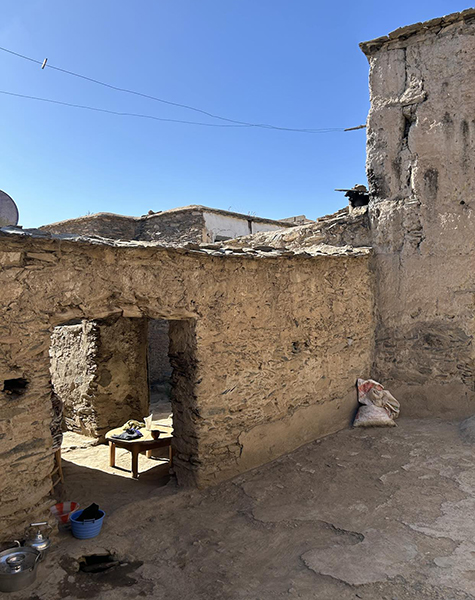
We learned that the parents had been married for thirty years. He grew up in that dirt floor stone house. Her mother was from a neighboring village. They have two older sons, who have moved off to Marrakech, the city about an hour away, now that a modern road comes to their village. The road has only been there for four years, according to our guide. Electricity came maybe ten years ago. I notice the new plaster that holds the wires in place over the stone structure. Piled stone. Very little mortar holding it together. Running water came in just the last couple years. No mention or indication of public sewerage. Waste water from cooking is thrown into the dirt floor of the open-air courtyard, on a few herbs they grow there. Mostly to keep flies and insects away. Today they were not doing their job very well. Pomegranate season. Flies are worst during Pomegranate and olive season.
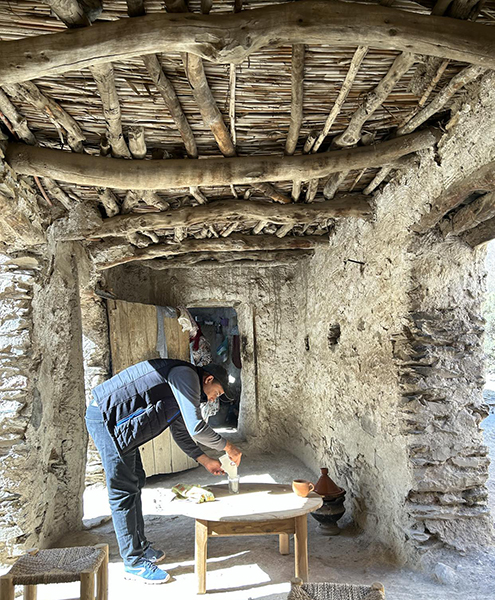
The family has five cats, four of whom are kittens. The mother chases them away from the few scraps thrown down by the family. The dog stays outside as it is not permitted into the house. The guide explained to us that cats are permitted inside because they clean themselves. Dogs do not, and are not.
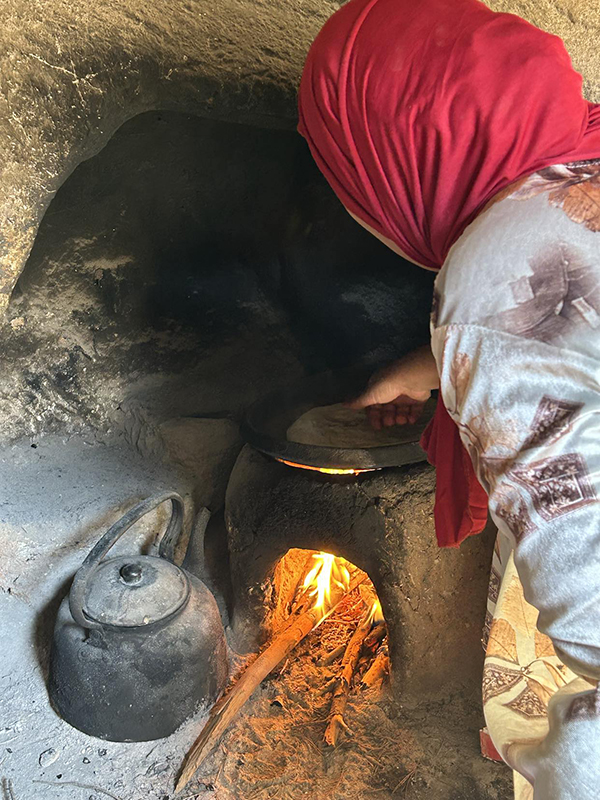
Karen helped kneed a simple bread, which was baked in a pan over an open fire. We also peeled the vegetables for a simple tagine, cooked over a stand-alone wood fire, stoked by a bellows. The family explained that the tagine could cook for one to six hours, depending on whether it had meat and what kind.
We consumed the meal we helped make with the family. It was very good in a plain simple food kind of way. While we asked questions and tried to make light of simple family truths… we evoked a few reserved smiles after translation, but no laughter. When people live this poorly and with no hope for a better future, it is difficult to be light hearted.
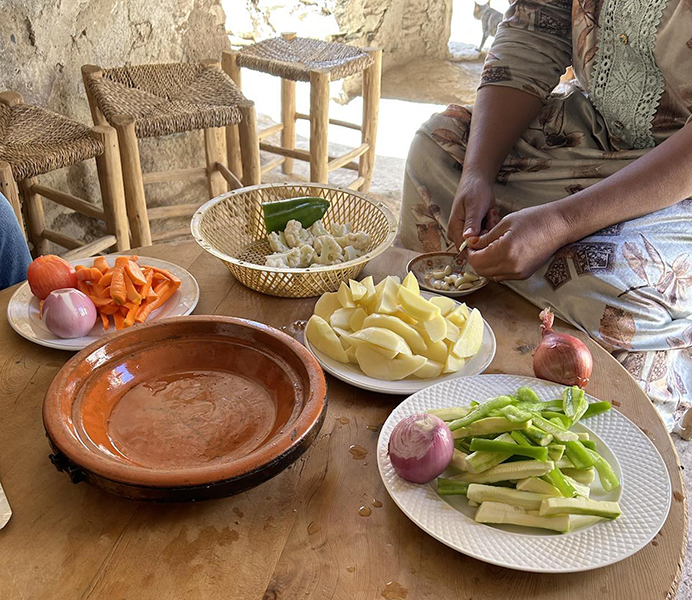
We do not know what will happen to this young woman. An education would open so many doors. However, we know from our own childhood experiences, it is hard to imagine a better future, when you do not even know what keys open the doors to opportunity.

